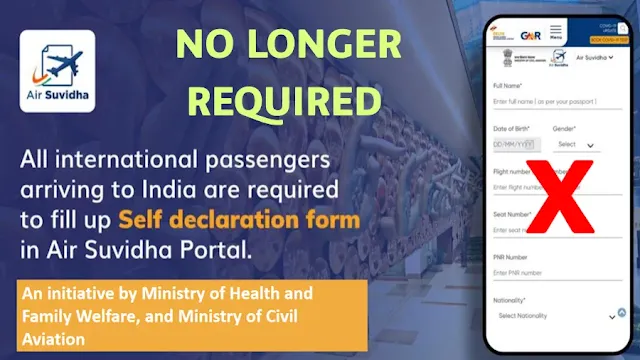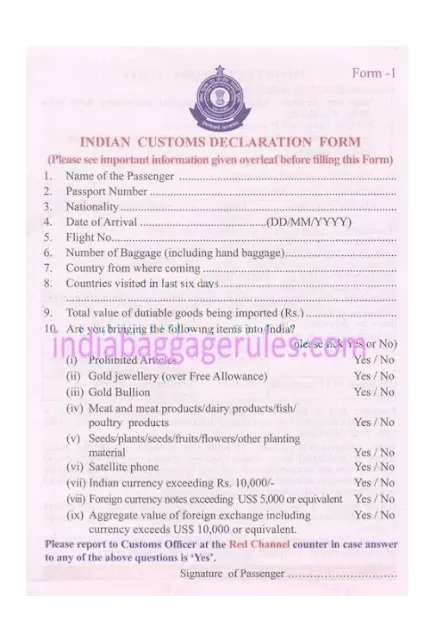Traveling to India is an exciting adventure, but navigating entry requirements can feel daunting. I remember my first trip to Delhi in 2022, anxiously checking if I needed to fill out the Air Suvidha form while juggling my passport and boarding pass at the airport. To ease your travel planning, this guide clarifies whether the Air Suvidha self-declaration form is still required, outlines other entry forms, and provides tips for a smooth arrival.
Table of Contents
What is the Air Suvidha Form?
The Air Suvidha Self-Declaration Form was introduced by the Indian government in August 2020 as a digital health and travel declaration to curb COVID-19 transmission. Managed by the Ministry of Health and Family Welfare (MoHFW), it required passengers to provide health status, travel history (last 14 days), and contact details. According to Wikipedia’s page on the COVID-19 pandemic in India, the form facilitated contact tracing and health monitoring.
Previously, travelers submitted details like:
- Name, age, nationality, passport number, contact information
- Flight number, seat number, date of arrival, entry port, origin port
- Indian address (house number, street/village, tehsil, state, pin code)
- Health status (e.g., COVID-19 symptoms) and vaccination/RT-PCR test results
Is the Air Suvidha Form Still Required?
No, the Air Suvidha form is no longer required for international arrivals to India.
As of November 22, 2022, the Indian government discontinued the Air Suvidha form and pre-arrival RT-PCR testing for all international passengers, regardless of origin, due to declining COVID-19 cases and widespread vaccination. The Delhi Airport guidelines confirm this change, and a MoHFW advisory emphasizes vaccination but does not mandate forms or tests. However, travelers from high-risk countries (e.g., China, Japan) were briefly required to submit the form in early 2023, though this was lifted by February 13, 2023.
Other Forms for India Entry
Customs Declaration Form
A customs declaration form may be required for international passengers bringing dutiable goods (e.g., goods worth over ₹50,000 or restricted items). Per the Central Board of Indirect Taxes and Customs (CBIC), this is typically completed upon arrival at the airport, not online, for passengers exceeding duty-free allowances.
Visa and State-Specific Forms
Travelers need a valid visa or e-Visa, obtainable via the Indian Visa Online portal. Some states, like Kerala, may require additional health or entry forms, such as the Jagratha portal for e-passes, though these are now rare post-COVID.
Tips for Travelers
- Check Official Sources: Verify requirements on the Delhi Airport Air Suvidha portal or MoHFW website for real-time updates.
- Contact Airlines: Airlines like Air India or Emirates provide updates on entry protocols.
- Secure Travel Insurance: Get comprehensive coverage for health and trip disruptions via travel insurance providers.
- Prepare Documents: Carry digital and physical copies of your passport, visa, and vaccination certificates, even if not mandatory.
Frequently Asked Questions
Is Air Suvidha form mandatory?
No, the Air Suvidha form is not mandatory as of November 22, 2022, for any international arrivals to India, per MoHFW guidelines.
Is a self-declaration form mandatory?
No, self-declaration forms like Air Suvidha are no longer required for international passengers arriving in India.
What forms do I need to fill before entering India?
No health-related forms are currently required. A customs declaration form may be needed for dutiable goods, and a visa or e-Visa is mandatory.
What is the self-declaration form for international arrival passengers?
The Air Suvidha form was a digital health and travel declaration for COVID-19 monitoring, requiring personal, travel, and health details. It’s no longer needed.
Is a customs declaration form required?
Yes, for passengers bringing goods exceeding ₹50,000 or restricted items, a customs declaration form is required upon arrival, per CBIC rules.
How to fill the form of self-declaration?
The Air Suvidha form is no longer required, so no filling is needed. Previously, it was completed online via the Delhi Airport portal with personal and travel details.







